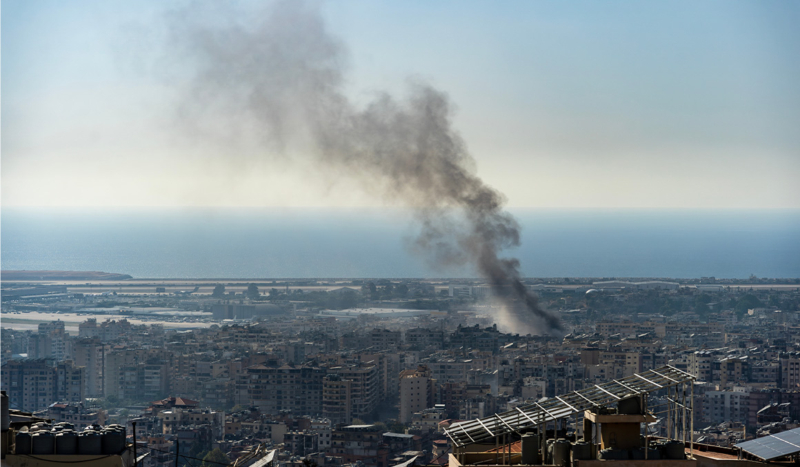
Shutterstock
The US Embassy in Jerusalem early Wednesday announced that it would be closed until Friday in compliance with local ordinances amid retaliatory Iranian strikes on the state of Israel, while the Trump administration signaled it may be weighing further US involvement in the Middle Eastern war.
After declaring “complete and total control of the skies over Iran” and oscillating between diplomacy and threats of military action in a series of June 17 media posts, President Donald Trump convened with national security officials in the White House Situation Room to discuss the escalating conflict.
Earlier that afternoon, Trump wrote on Truth Social, “We now have complete and total control of the skies over Iran. Iran had good sky trackers and other defensive equipment… but it doesn’t compare to American made, conceived, and manufactured ‘stuff.’”
At the same time, he claimed intelligence had pinpointed the location of Iran’s Supreme Leader Ayatollah Ali Khamenei, calling him an “easy target.” He added, “We are not going to take him out (kill!), at least not for now,” while warning Iran not to target civilians and American soldiers.
In another post, Trump demanded “UNCONDITIONAL SURRENDER!”, raising questions about whether the White House is signaling imminent military escalation.
Trump’s increasingly aggressive posture comes just a day after he urged residents to evacuate Tehran “immediately” following a wave of Israeli attacks.
“Iran should have signed the ‘deal’ I told them to sign,” Trump wrote in a June 16 Truth Social post. “What a shame, and waste of human life. Simply stated, IRAN CAN NOT HAVE A NUCLEAR WEAPON. I said it over and over again! Everyone should immediately evacuate Tehran!”
Earlier, following the June 13 Israeli strikes that initiated the conflict, Trump had emphasized diplomacy.
As CatholicVote reported June 13, “Trump reiterated his administration’s preference for diplomacy, while insisting Iran must abandon any pursuit of nuclear arms.”
By June 15, Trump claimed he had spoken with Russian President Vladimir Putin and predicted imminent peace talks.
“We will have PEACE, soon, between Israel and Iran!” he wrote. “Many calls and meetings now taking place.” That same day, Trump left the G7 summit in Italy early to address the rapidly evolving crisis.
Despite his escalating tone, Trump is facing pressure from two conflicting sides on the political right.
Many of Trump’s supporters are urging restraint, while commentators generally known as foreign policy “hawks” push for deeper US involvement. Many of these commentators opposed Trump’s initial candidacy in 2016, while some remained opposed to his anti-interventionist foreign policy positions through the 2020 and 2024 elections.
Vice President JD Vance defended Trump against criticisms in a June 17 X post, claiming the President has been “amazingly consistent” for over a decade in opposing Iranian nuclear ambitions. Vance stated Trump had pushed for a diplomatic deal but may “take further action” if needed.
Vance also dismissed concerns from critics who cited March testimony from Director of National Intelligence Tulsi Gabbard, in which she announced the intelligence community’s finding that Iran was not building a nuclear weapon.
“Tulsi’s testimony was in March, and a lot has changed since then,” Vance wrote.
While Trump has declined to say whether US forces will strike Iran directly, he has made clear that the military remains on high alert.
